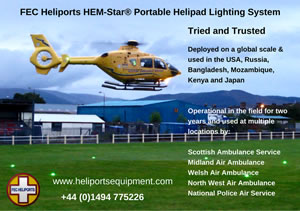BAE SYSTEMS2003-02-27 17:42:13
BAE SYSTEMS JCAD CHEMICAL AGENT DETECTOR SUCCESSFULLY COMPLETES TESTING
BAE SYSTEMS Joint Chemical Agent Detector (JCAD) - a portable, handheld device that can alert users to the presence of deadly chemical warfare agents - has successfully passed a key test prior to initial production. The highly advanced units are being developed for the military by BAE SYSTEMS Integrated Defense Solutions in Austin, Texas.
According to Bertha Haass, JCAD programme manager for the U.S. Air Force, “The positive results of the tests demonstrate the strong commitment of the JCAD team. This is an important step to providing the U.S. Armed forces with the chemical detection capability that JCAD offers.”
The successful surety testing - part of the Contractor Validation Test (CVT) - that precedes full rate production was conducted at Calspan University of Buffalo Research Center (CUBRC), Buffalo, New York. The tests demonstrated JCAD’s detection sensitivity and selectivity, false alarm rejection performance, environmental ruggedness, and overall system capabilities that met or exceeded rigorous Department of Defense performance specifications. The tests, witnessed and monitored by U.S. government experts, constituted a major milestone for the deployment of these systems to help defend military forces at home and abroad.
“We were extremely pleased with the results of these important JCAD tests,” said Ronda Foster, IDS vice president and general manager for Battlespace Awareness Systems in Austin. “This accomplishment is right on track for JCAD development toward full-scale production. Our customers have also expressed strong interest in accelerating JCAD availability for our troops in the field because of JCAD’s significantly improved performance over any system currently in the U.S. inventory.”
The successful CVT tests were conducted using units from the Austin unit’s high-volume production line, Foster said.
The JCAD is a small, lightweight, high-performance chemical detection system that offers networked or stand-alone chemical detection. It can be hand-held or operated from a vehicle or from a fixed installation. The JCAD chemical detector programme is a joint-service engineering, manufacturing and development (EMD) project administered by the Air Force at Brooks City-Base, San Antonio, Texas.
JCAD ChemSentry™, the commercial version of JCAD, is now in production with more than 700 deliveries to date. Using the same design, JCAD ChemSentry™ offers the same features and performance of JCAD -- and is available today for civilian and military users world-wide.
BAE SYSTEMS Joint Chemical Agent Detector (JCAD) - a portable, handheld device that can alert users to the presence of deadly chemical warfare agents - has successfully passed a key test prior to initial production. The highly advanced units are being developed for the military by BAE SYSTEMS Integrated Defense Solutions in Austin, Texas.
According to Bertha Haass, JCAD programme manager for the U.S. Air Force, “The positive results of the tests demonstrate the strong commitment of the JCAD team. This is an important step to providing the U.S. Armed forces with the chemical detection capability that JCAD offers.”
The successful surety testing - part of the Contractor Validation Test (CVT) - that precedes full rate production was conducted at Calspan University of Buffalo Research Center (CUBRC), Buffalo, New York. The tests demonstrated JCAD’s detection sensitivity and selectivity, false alarm rejection performance, environmental ruggedness, and overall system capabilities that met or exceeded rigorous Department of Defense performance specifications. The tests, witnessed and monitored by U.S. government experts, constituted a major milestone for the deployment of these systems to help defend military forces at home and abroad.
“We were extremely pleased with the results of these important JCAD tests,” said Ronda Foster, IDS vice president and general manager for Battlespace Awareness Systems in Austin. “This accomplishment is right on track for JCAD development toward full-scale production. Our customers have also expressed strong interest in accelerating JCAD availability for our troops in the field because of JCAD’s significantly improved performance over any system currently in the U.S. inventory.”
The successful CVT tests were conducted using units from the Austin unit’s high-volume production line, Foster said.
The JCAD is a small, lightweight, high-performance chemical detection system that offers networked or stand-alone chemical detection. It can be hand-held or operated from a vehicle or from a fixed installation. The JCAD chemical detector programme is a joint-service engineering, manufacturing and development (EMD) project administered by the Air Force at Brooks City-Base, San Antonio, Texas.
JCAD ChemSentry™, the commercial version of JCAD, is now in production with more than 700 deliveries to date. Using the same design, JCAD ChemSentry™ offers the same features and performance of JCAD -- and is available today for civilian and military users world-wide.
For more information contact:
Warwick House
Po Box 87
Farnborough Aerospace Centre
Farnborough
Hampshire
GU14 6YU
United Kingdom
Tel: + 44 1252 373232
Fax: + 44 1252 383000
